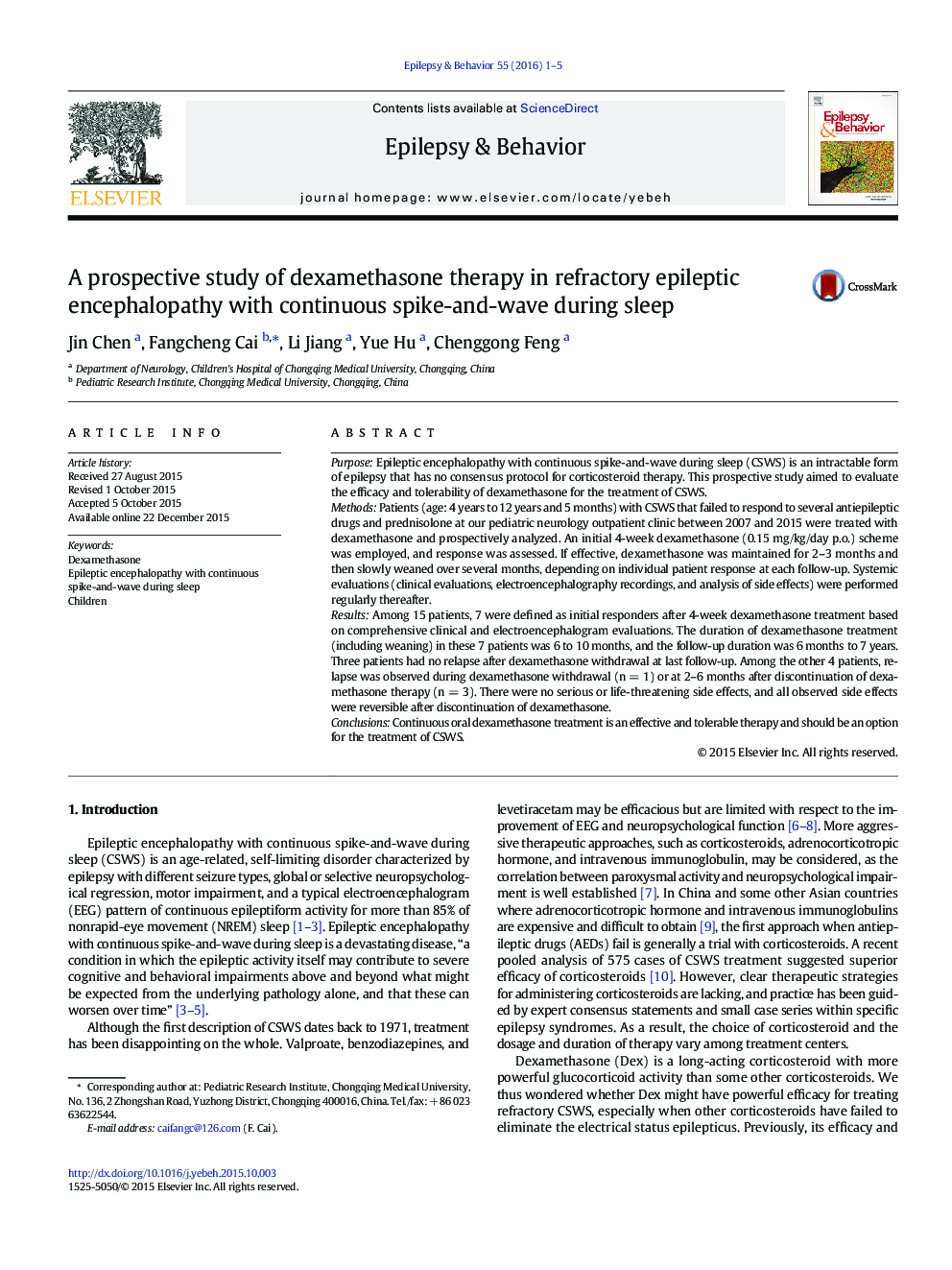| کد مقاله | کد نشریه | سال انتشار | مقاله انگلیسی | نسخه تمام متن |
|---|---|---|---|---|
| 6010678 | 1579835 | 2016 | 5 صفحه PDF | دانلود رایگان |
- Continuous oral dexamethasone should be an option for treatment of refractory CSWS
- The relapse risk of continuous oral dexamethasone treatment of CSWS still exists.
- Side effects of continuous oral dexamethasone appear to be tolerable and reversible.
PurposeEpileptic encephalopathy with continuous spike-and-wave during sleep (CSWS) is an intractable form of epilepsy that has no consensus protocol for corticosteroid therapy. This prospective study aimed to evaluate the efficacy and tolerability of dexamethasone for the treatment of CSWS.MethodsPatients (age: 4 years to 12 years and 5 months) with CSWS that failed to respond to several antiepileptic drugs and prednisolone at our pediatric neurology outpatient clinic between 2007 and 2015 were treated with dexamethasone and prospectively analyzed. An initial 4-week dexamethasone (0.15 mg/kg/day p.o.) scheme was employed, and response was assessed. If effective, dexamethasone was maintained for 2-3 months and then slowly weaned over several months, depending on individual patient response at each follow-up. Systemic evaluations (clinical evaluations, electroencephalography recordings, and analysis of side effects) were performed regularly thereafter.ResultsAmong 15 patients, 7 were defined as initial responders after 4-week dexamethasone treatment based on comprehensive clinical and electroencephalogram evaluations. The duration of dexamethasone treatment (including weaning) in these 7 patients was 6 to 10 months, and the follow-up duration was 6 months to 7 years. Three patients had no relapse after dexamethasone withdrawal at last follow-up. Among the other 4 patients, relapse was observed during dexamethasone withdrawal (n = 1) or at 2-6 months after discontinuation of dexamethasone therapy (n = 3). There were no serious or life-threatening side effects, and all observed side effects were reversible after discontinuation of dexamethasone.ConclusionsContinuous oral dexamethasone treatment is an effective and tolerable therapy and should be an option for the treatment of CSWS.
Journal: Epilepsy & Behavior - Volume 55, February 2016, Pages 1-5
